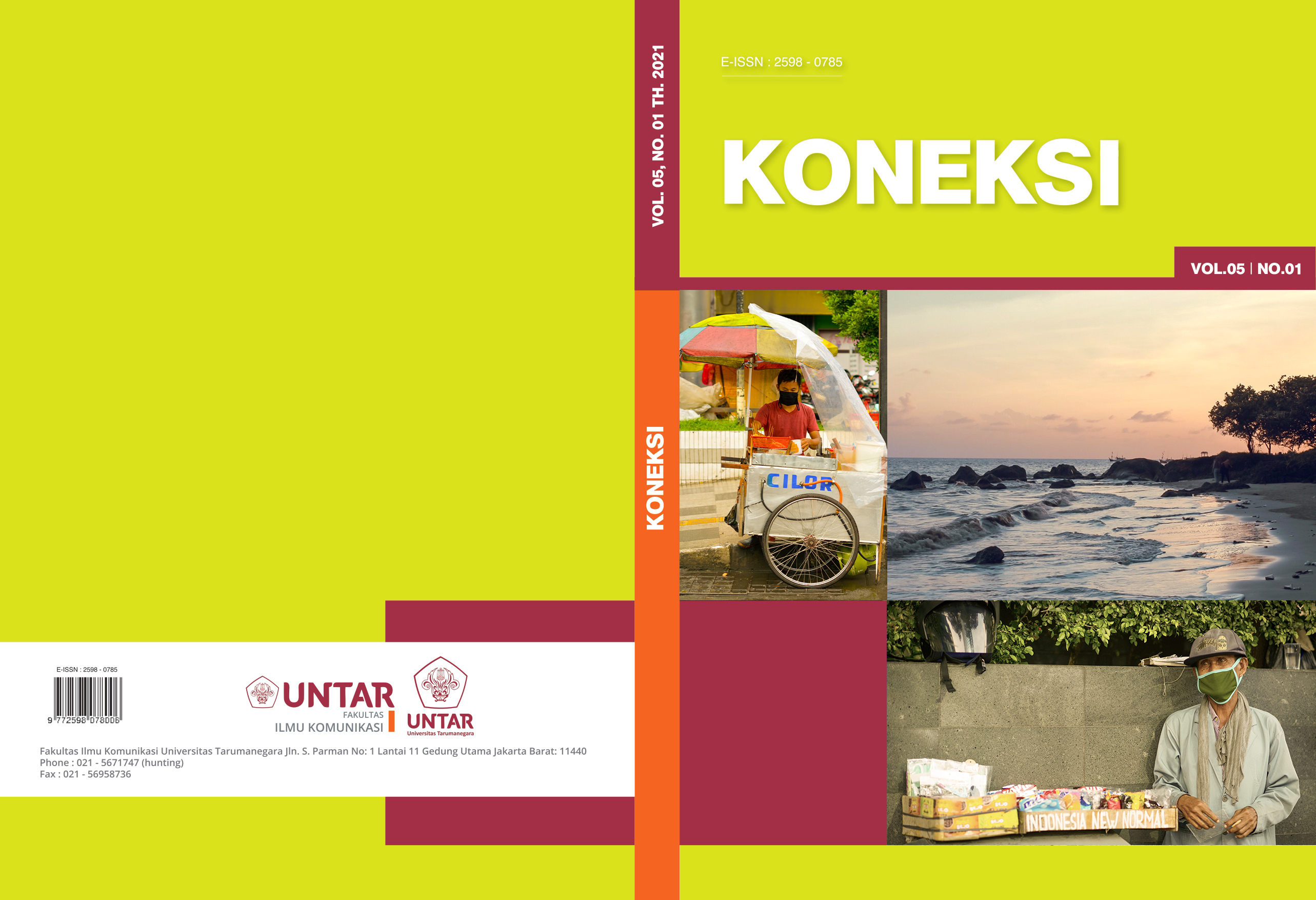Proses Organisasi Informasi COVID-19 Pada Media Sosial Instagram Kementerian Komunikasi dan Informatika Republik Indonesia
Main Article Content
Abstract
The Ministry of Communication and Informatics of the Republic of Indonesia (Kemenkominfo) is the official reference in delivering guidance and information about Covid-19. Therefore, the Ministry of Communication and Information carries out an information management process that involves organizational subsections within it. This process is studied using organizational information theory. This research raises the issue of the information organization process carried out by organizational members at the Ministry of Communication and Information in receiving and re-analyzing information related to Covid-19 through three stages of analysis, namely, enactment, selection, and retention. The three stages of information organization aim to reduce equivocality or confusion of information related to Covid-19 received between subsections of the Ministry of Communication and Informatics during the Covid-19 pandemic. This research uses a qualitative approach with a case study method. The case study was conducted in the organization subsection of the Ministry of Communication and Information. Data collection was carried out by interviewing techniques. The results of this study indicate that the Ministry of Communication and Informatics carried out the determination process by interpreting the information between the online media subsection and the news by evaluating the information. Then obtained a policy to receive information from official sources. The information selection process is carried out by looking for additional information on external media, especially Instagram. The last is the process of storing information that has been received, not collected during the process of receiving information. The organization of the Ministry of Communication and Information is more focused on evaluating the information received by way of discussion among other subsections and subsections in order to reduce disinformation.
Kementerian Komunikasi dan Informatika Republik Indonesia (Kemenkominfo) menjadi rujukan resmi dalam menyampaikan panduan dan informasi seputar Covid-19. Oleh karena itu Kemenkominfo melakukan proses pengelolaan informasi yang melibatkan subbagian organisasi didalamnya. Proses ini dikaji dengan menggunakan teori informasi organisasi. Penelitian ini mengangkat persoalan mengenai proses organisasi informasi yang dilakukan oleh anggota organisasi di Kemenkominfo dalam menerima dan menganalisis kembali informasi terkait Covid-19 melalui tiga tahap analisis yakni, penetapan (enactment), pemilihan (selection), dan penyimpanan (retention). Tiga tahap organisasi informasi tersebut bertujuan untuk mengurangi ekuivokalitas atau kesimpangsiuran informasi terkait Covid-19 yang diterima antar subbagian organisasi Kemenkominfo saat pandemi Covid-19. Penelitian ini menggunakan pendekatan kualitatif dengan metode studi kasus. Studi kasus dilakukan pada subbagian organisasi Kemenkominfo. Pengumpulan data dilakukan dengan teknik wawancara. Hasil penelitian ini menunjukkan Kemenkominfo melakukan proses penetapan dengan cara menginterpretasikan informasi antara subbagian media online dan pemberitaan dengan cara evaluasi informasi. Kemudian diperoleh kebijakan untuk menerima informasi dari sumber resmi. Proses penyeleksian informasi dilakukan dengan cara mencari informasi tambahan di media eksternal khususnya instagram. Terakhir adalah proses penyimpanan informasi yang telah diterima, tidak dikumpulkan saat proses penerimaan informasi. Organisasi Kemenkominfo lebih fokus mengevaluasi informasi yang diterima dengan cara berdiskusi antar sesama subbagian maupun subbagian lainnya agar dapat mengurangi disinformasi.
Article Details
References
Creswell, J. W. (2007). “Qualitative Inquiry and research design: choosing among five approaches. Thousand Oaks London New Delhi, Sage Publication
Destiana, E. (2019). Strategi Majalah Internal di PT.Garuda Indonesia (Pesero) tbk Berdasarkan Teori Informasi Organisasi: Studi Kasus pada Majalah View Tahun 2018. Bachelor Thesis, Universitas Multimedia Nusantara. https://kc.umn.ac.id/10697/, diunduh tanggal 12 Oktober 2020
Moleong Lexi J. (2009). Metode Penelitian Kualitatif. Edisi Revisi. Bandung: Remaja Rosdakarya
Nindyasari, (2014). Konstruksi Kebijakan Sistem Boarding Pass Di PT KAI (PERSERO) (Studi Deskriptif Kualitatif tentang Konstruksi Kebijakan Sistem Boarding Pass di PT KAI dengan Pendekatan Karl Weick). E-journal Universitas Atma Jaya Yogyakarta. http://e-journal.uajy.ac.id/6673/1/JURNAL.pdf
Oktaviana, S & Widayatmoko. (2018). Jaringan Komunikasi Antara Pimpinan dan Karyawan dalam Menumbuhkan Komitmen Karyawan di PT Digital Suplai Indonesia. Jurnal Koneksi, 2(2). https://journal.untar.ac.id/index.php/koneksi/article/view/3936/2319, diunduh tanggal 8 Oktober 2020.
Ramadhan, Adhitya. (2020). Informasi penting yang perlu diketahui seputar Covid-19. Diambil kembali dari kompas.id: https://kompas.id/baca/internasional/2020/03/31/informasi-penting-yang-perlu-diketahui-seputar-covid-19/
Suswanto, B. (2016). Analisis Aliram Informasi Komunikasi Internal Dalam Implementasi Mobile Working Pada Perusahaan Media Penyedia Konten Internal Magazine (Studi Kasus di PT Tanair Media Seruni). Jurnal Media Komunikasi, 6(2). http://digilib.mercubuana.ac.id
West, Richard, Lynn H Turner, (2009). Pengantar Teori Komunikasi: Analisis dan Aplikasi Edisi Ketiga. Jakarta: Salemba Humanika



